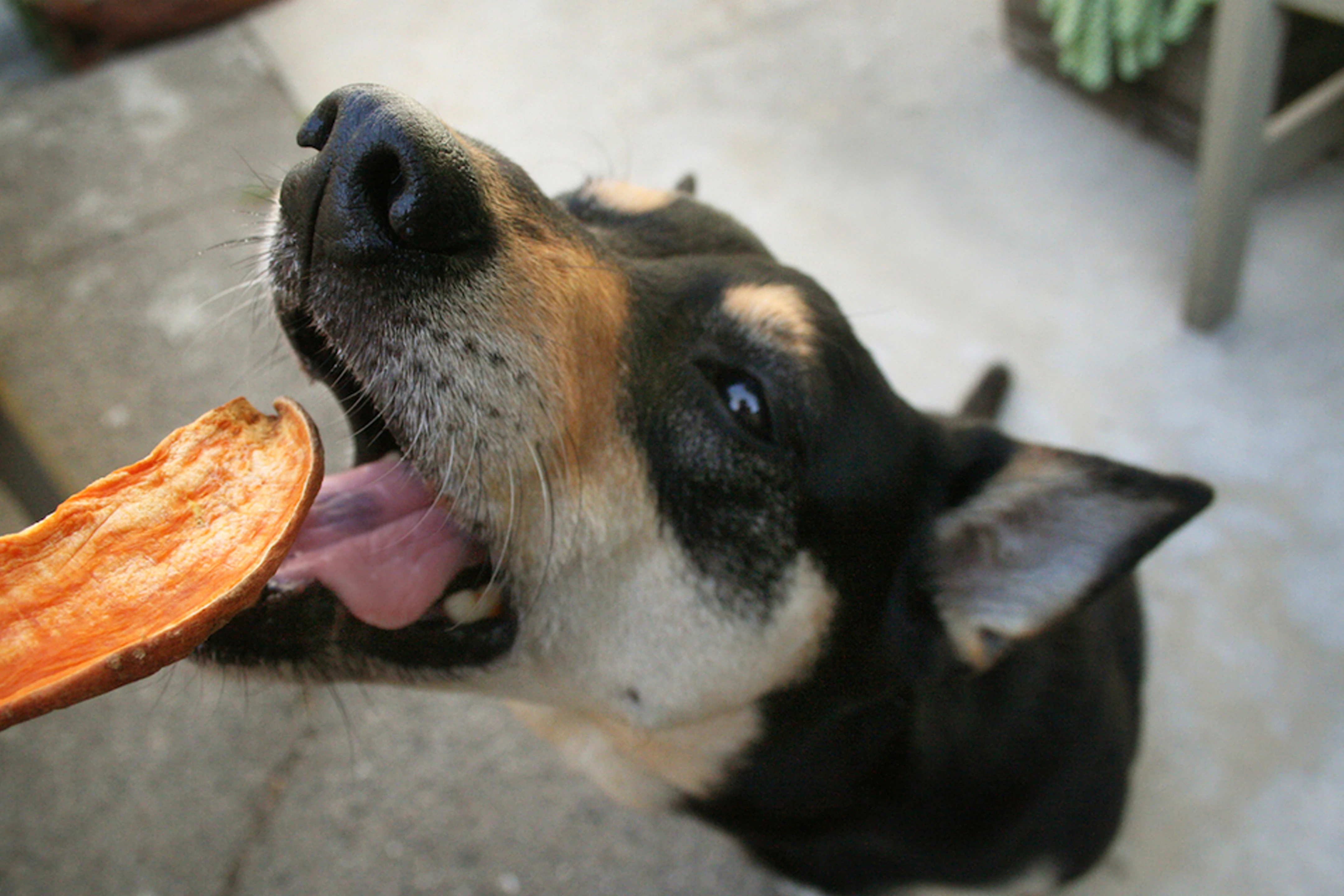Sweet potatoes are a nutritious and versatile food that many people enjoy, but as a dog owner, you may wonder if it's safe to share this tasty root vegetable with your furry friend. This article will explore the benefits of sweet potatoes for dogs, how to prepare them safely, and any precautions to keep in mind.
The Benefits of Sweet Potatoes for Dogs
Sweet potatoes can be a healthy addition to your dog's diet. Here are some key benefits:
1. Nutrient-Rich
- Sweet potatoes are packed with essential vitamins and minerals, including vitamin A (beta-carotene), vitamin C, potassium, and dietary fiber. These nutrients can support your dog's immune system, promote healthy skin and coat, and improve digestive health.
2. High in Fiber
- The high fiber content in sweet potatoes can aid digestion and help regulate your dog’s bowel movements. Fiber can also help your dog feel fuller for longer, making it a great addition for weight management.
3. Low in Fat
- Sweet potatoes are naturally low in fat, making them a healthy option for dogs, especially those prone to weight gain.
4. Natural Antioxidants
- Sweet potatoes contain antioxidants, which can help combat free radicals in the body, potentially reducing the risk of chronic diseases.
How to Prepare Sweet Potatoes for Dogs
If you decide to include sweet potatoes in your dog’s diet, it’s essential to prepare them correctly. Here’s how:
1. Choose Fresh Sweet Potatoes
- Select fresh, firm sweet potatoes without any bruises or soft spots. Avoid any that show signs of mold or decay.
2. Cooking Methods
- Boiling: Peel and cut sweet potatoes into chunks, then boil them until they are tender. Drain and let them cool before serving.
- Baking: You can also bake sweet potatoes. Simply wash them, pierce with a fork, and bake at 400°F (200°C) for about 45-60 minutes until soft. Allow them to cool before serving.
- Mashed: After cooking, you can mash sweet potatoes for easier serving. Avoid adding any butter, sugar, or spices, as these can be harmful to dogs.
3. Serve in Moderation
- Sweet potatoes should be served in moderation as part of a balanced diet. They should not replace your dog's regular food but can be offered as an occasional treat.
Precautions to Keep in Mind
While sweet potatoes are generally safe for dogs, there are a few precautions to consider:
1. Avoid Raw Sweet Potatoes
- Raw sweet potatoes can be hard for dogs to digest and may cause gastrointestinal upset. Always cook sweet potatoes before serving them.
2. Watch for Allergies
- Although rare, some dogs may be allergic to sweet potatoes. When introducing them for the first time, start with a small amount and monitor your dog for any signs of an allergic reaction, such as itching, vomiting, or diarrhea.
3. Consult Your Veterinarian
- If your dog has any specific health conditions, such as diabetes or pancreatitis, consult your veterinarian before adding sweet potatoes to their diet.
Signs Your Dog Might Enjoy Sweet Potatoes
Many dogs love the taste of sweet potatoes! If you’re unsure whether your dog will enjoy this treat, look for these signs:
- Eager Behavior: If your dog shows excitement when you’re preparing sweet potatoes or smells them, they may enjoy the taste.
- Positive Response: If your dog happily eats a small piece of cooked sweet potato, it’s a good sign they like it.
Alternative Healthy Treats for Dogs
If your dog isn’t a fan of sweet potatoes or if you want to offer a variety of treats, consider these other healthy options:
- Carrots: Crunchy and low-calorie, carrots are a great snack for dogs.
- Pumpkin: Cooked pumpkin is another nutritious option that can aid digestion.
- Green Beans: Fresh or steamed green beans are healthy and low in calories.
- Apples: Remove the seeds and core, and apples can be a sweet and crunchy treat.
Conclusion
In summary, sweet potatoes can be a healthy and delicious treat for dogs when prepared properly and served in moderation. They offer numerous health benefits, including essential vitamins, minerals, and fiber. Always consult your veterinarian if you have concerns about your dog’s diet or if they have any specific health conditions.
Takeaway Tips for Feeding Sweet Potatoes to Dogs
- Cook Thoroughly: Always cook sweet potatoes before serving; avoid raw sweet potatoes.
- Avoid Additives: Serve plain sweet potatoes without butter, sugar, or spices.
- Moderation is Key: Treat sweet potatoes as an occasional treat, not a regular meal replacement.
- Monitor for Reactions: Watch for any signs of allergies when introducing new foods.
- Consult Your Vet: If unsure, seek advice from your veterinarian regarding your dog’s dietary needs.


